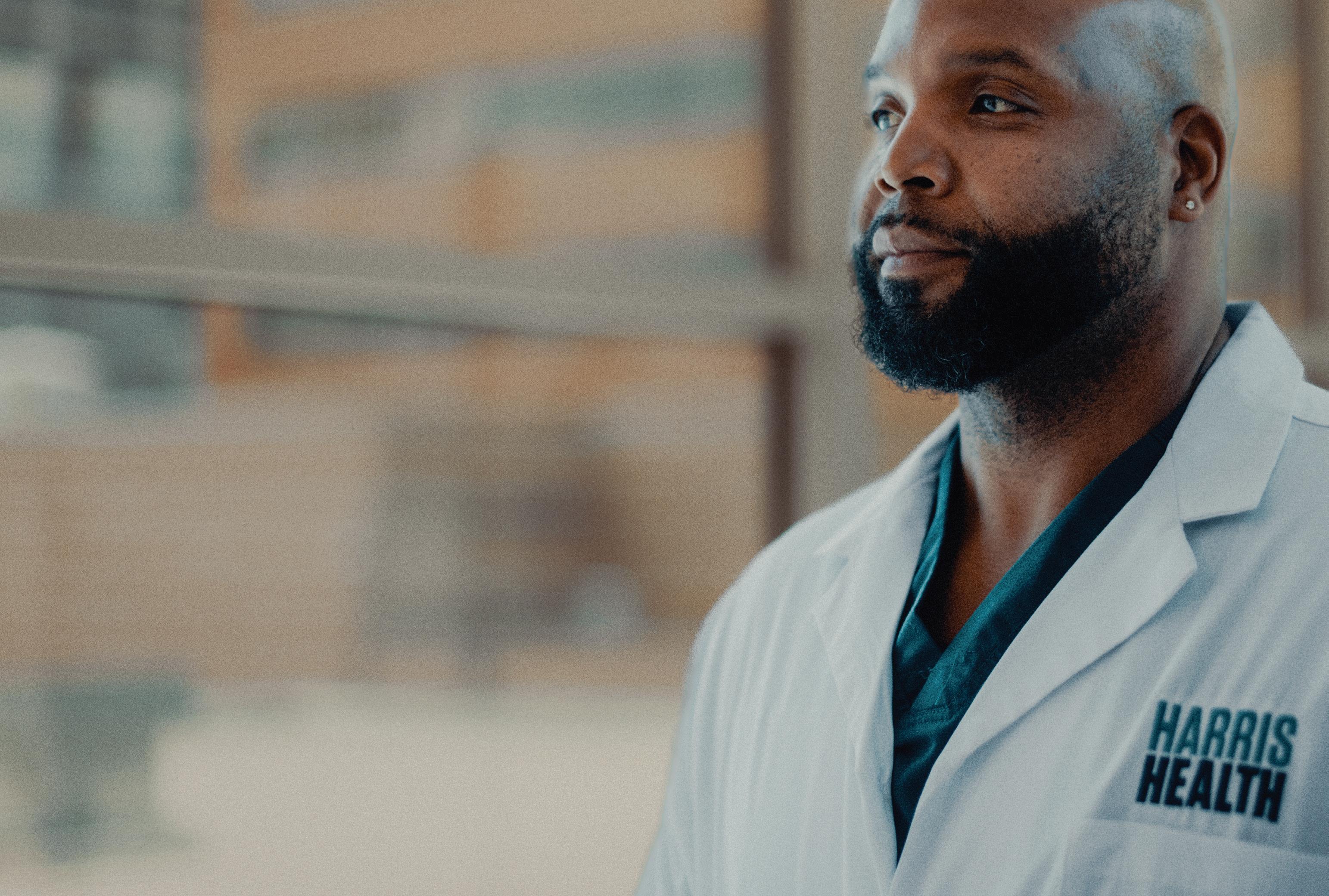








he start of a new day can be exciting, especially if you have an action-packed schedule to look forward to.
If you’re looking to meet the day with more, there are plenty of easy ways to set yourself up for success in the mornings. Research has shown that adopting a morning routine can boost productivity and focus, reduce stress and anxiety and supercharge your mood.
But it doesn’t mean you need to overhaul your life completely. Just a few small changes can result in big benefits. Here are six ways to lay the groundwork for a more fulfilling day.
DITCH THE SNOOZE BUTTON. Stealing a few extra minutes of sleep when you’re cozy in bed is a tempting idea, but it can do more harm than good. Dozing off after hitting the snooze button can leave you feeling tired and groggy, especially if you drift into REM sleep and are jolted out of it by the follow-up alarm. It can interfere with your overall sleep cycle, too.
LET THE LIGHT IN. Some people love wake-up lights that mimic sunrise, so they wake up more naturally. These can be great tools to simulate a natural sunrise, especially during the winter season. If you don’t have one of those and are waking up during sunlight hours, just throw open your curtains and greet the day. Seeing light in the morning tells your body it’s time to get up and can help you feel more alert.
TAKE YOUR VITAMINS. Many individuals, even nutritionists, find it hard to eat a balanced diet every day given how busy our lifestyles are. A good vitamin and
supplement routine can be key to getting the nutrients you need. There are a lot of choices in the vitamin aisle! To help people elevate their morning routine without added sugar, look for a sugar-free alternative that tastes great and offers the same nutrient support as a regular vitamin.
HYDRATE. Drinking water soon after you wake up hydrates you after a long night and can increase your energy levels. It is also helpful in boosting mental performance.
EAT A HEALTHY BREAKFAST. According to research from Henry Ford Health, among numerous other studies, eating a high-protein breakfast helps you feel full throughout the day and, even more than that, it helps control your blood sugar. According to this research, after eating protein for breakfast, your blood sugar remains low for hours. But if you start the day with refined carbs, like grabbing a pastry on the way out the door, your blood sugar spikes and then crashes, which can make you feel tired and hungry. Great choices: Greek yogurt or cottage cheese, a smoothie with protein powder, or a breakfast burrito with eggs and black beans.
MOVE A LITTLE. This doesn’t mean you have to take a spin class or run a marathon. Ten minutes of stretching, some light yoga or tai chi, or walking the dog will energize you, get your blood moving, and make you feel more alert, awake and ready to take on the day.
Instead of a mad dash out of the house, mornings can be a time where you practice self-care, setting yourself up to tackle whatever the rest of your day holds. By creating a positive, uplifting morning routine, your whole day will fall into place.
Source: Brandpoint
f you’re experimenting with going vegan, you’ve got good timing. Even just a decade ago, it was difficult to find meat- and dairyfree options in restaurants and in the grocery store, let alone tasty vegan recipes to make at home. But now, it has never been easier to focus on plant-based eating. Grocery stores are filled with vegan products and even meat substitutes like burgers and chicken. Many restaurants offer vegan menu items, denoted with a green V. Vegan cookbooks are on the New York Times Bestseller List. Still, it seems like a huge dietary change to make. Do you have to overhaul everything?
The good news is, the answer to that is no. In fact, experts like those at the Harvard T.H. Chan School of Public Health say that, while a vegan diet can reduce the risks of cardiovascular disease, blood cholesterol and diabetes, it’s best not to go all in, all at once. It can feel overwhelming, difficult, and restrictive, so much so that you might just abandon the effort. A great way to start small is to swap out some ingredients in your favorite meals to make them vegan, without the fuss. Here are some easy swaps to make some of your favorite dishes vegan.

Oatmilk skyr for regular yogurt. Not familiar with skyr? It’s like yogurt, but creamier, thicker, higher in protein and usually lower in sugar. It’s a staple for many Nordic peoples, but because it’s traditionally made from milk, vegans haven’t had that option. Take a single-serve cup on the go or use it just like you would milk-based skyr or yogurt - a bowl with berries and granola starts the day off right. Chickpeas for tuna or chicken in salad sandwiches for wraps. This clever trick will transform your lunches, and it’s so easy to do. Start with a can of chickpeas (garbanzo beans) and lightly mash so they’re still chunky. Then dress it up the same way you would a tuna or chicken salad sandwich - diced celery and onion, a dash of parsley or dill, and vegan mayo or plain oatmilk skyr for the base. Spread it on bread and add lettuce, tomato, avocado or whatever your taste buds fancy!
Lentils for beef or pork in spaghetti sauces. Many people find they can’t even tell the difference when they sub lentils for ground meat in sauces. Here’s the trick: Cook the lentils bolognese-style, with a vegan twist. Start by sauteing onion and garlic. Add your lentils, and then pour enough oat or soy milk to just cover the lentils and let that boil down. Then, add white wine, and boil that down, too. While the wine is reducing, add Italian spices. Last, add your tomato sauce and paste and simmer. Bonus tip: You can twist
this recipe for tacos, too, by using Mexican spices. Top with plain oatmilk skyr, a great replacement for sour cream, and cilantro.
Oatmilk skyr, bananas or applesauce for eggs in baking. You can get all the moisture with none of the dairy by subbing oatmilk skyr, bananas or applesauce for eggs in your favorite baking recipes. Here’s what you need to know:
One-fourth cup of oatmilk skyr or applesauce equals one egg. For bananas, one-half cup of mashed banana equals one egg. Give it a try! You’ll be surprised how delicious it is. Going vegan, a little at a time, is an easy way to lighten up your diet. By swapping vegan ingredients for meat or dairy in your favorite dishes, you won’t miss a thing!
Source: Brandpoint
By Letrice Mason, MSN, APRN, FNP-C Contributing Writer
enstrual periods usually last four to seven days. Periods that are less than 21 days between or more than 35 days apart, missing three or more periods in a row, and menstrual flow that is substantially thicker or lighter than usual are all examples of menstrual disorders.
Keep on reading to find more information about irregular periods and their causes, as well as what you can do to prevent this from happening.
The monthly set of changes that a woman’s body goes through in preparation for the potential of pregnancy is known as the menstrual cycle. Ovulation is the release of an egg by one of the ovaries once a month. Hormonal changes prepare the uterus for pregnancy at the same time. If ovulation occurs but the egg is not fertilized, the uterine lining sheds via the vaginal opening, resulting in a monthly period.
Every woman’s menstrual cycle, which runs from the first day of one period to the first day of the next, is different. Menstrual flow can last anywhere from two to seven days and can occur every 21 to 35 days. Long cycles are frequent in the first several years after menstruation begins. Menstrual cycles, on the other hand, tend to shorten and become more regular as you get older.
Your period can be light or heavy, painful or pain-free, long or short, and still, be considered normal if your menstrual cycle is regular and around the same duration every month. “Normal” refers to what is normal for you within a broad range. Keep in mind that certain methods of contraception, such as extended-cycle birth control tablets and intrauterine devices (IUDs), can cause your menstrual cycle to change. Your period may become irregular again as you approach menopause.
Menstrual cycle irregularities can be caused by a variety of factors, including:
• Breast-feeding or pregnancy. A missed period can be an indication of an impending pregnancy. Breastfeeding tends to postpone the onset of menstruation after pregnancy.
• Eating disorders, such as significant weight loss, or excessive exercise. Menstruation can be disrupted by eating disorders including anorexia nervosa, significant weight reduction, and excessive physical activity.
• Polycystic ovarian syndrome (PCOS). During an ultrasound test, women with this common endocrine system issue may have irregular periods as well as enlarged ovaries with tiny collections of fluid in each ovary.
• Ovarian failure that occurs too soon. The lack of normal ovarian function before the age of 40 is referred to as premature ovarian failure. For years, women with premature ovarian failure, also known as primary ovarian insufficiency, may experience irregular or infrequent periods.
• Inflammation of the pelvis (PID). Menstrual irreg ularities can be caused by this infection of the repro ductive organs.
• Fibroids in the uterus. Uterine fibroids are noncancer ous uterine growths. They can produce heavy menstrual cycles and menstrual periods that last a long time.
If your menstrual cycle has changed in any way, you should keep track of when your period starts and finishes, as well as the volume of blood flow and whether you pass large blood clots. Other symptoms to keep track of include bleeding between periods and menstrual cramps or pain.

Book a consultation with us to discuss your specific situation so a personalized treatment can be recommended for you. Her Down There strives for promoting accessible and quality healthcare services for all women, with accurate information and tests that can help you have a more balanced menstrual cycle.
Letrice Mason, MSN, APRN, FNP-C, is an accomplished women’s health nurse practitioner and proud owner of the esteemed Her Down There Women’s Clinic. She is a trusted healthcare professional within the Houston community.

By d-mars.com News Provider
lanning a mental health day for wellness and relaxation involves setting aside time to focus on self-care, reduce stress, and recharge. Here are some steps to help you make the most of your day:
Set Intentions:
• Decide on your goals for the day. Do you want to relax, engage in a hobby, exercise, or simply rest? Clear intentions help structure your day.
Disconnect:
• Limit exposure to digital devices, especially work-related emails and social media. This helps reduce stress and allows you to focus on the present moment.
Sleep In:
• Allow yourself to wake up naturally without an alarm if possible. Adequate sleep is crucial for mental health.
Healthy Breakfast:
• Start your day with a nutritious breakfast to fuel your body and mind.
Exercise:
• Engage in physical activity that you enjoy, whether it’s yoga, a walk in nature, or a workout.
Exercise boosts endorphins and reduces stress.
Mindfulness and Meditation:
• Practice mindfulness or meditation to calm your mind and enhance your sense of well-being.
Creative Activities:
• Engage in a creative hobby such as painting, drawing, writing, or playing music. Creative expression can be therapeutic.
Read a Book:
• Choose a book you’ve been wanting to read and spend some quiet time immersed in a good story.
Spend Time in Nature:
• Go for a walk in the park, hike, or simply sit outside. Nature has a calming effect and can improve mood.
Self-Care Routine:
• Indulge in self-care activities like taking a long bath, using a face mask, or giving yourself a manicure.
Connect with Loved Ones:
• Spend quality time with family or friends who uplift you. Positive social interactions can boost your mood.
Limit Caffeine and Sugar:
• Opt for water, herbal teas, or natural juices. Excess caffeine and sugar can increase anxiety.
Reflect:
• Spend some time journaling or reflecting on your thoughts and feelings. This can help you gain perspective and clarity.
Gratitude Practice:
• Write down things you’re grateful for. Practicing gratitude can enhance your overall well-being.
Prepare a Healthy Meal:
• Cook a nutritious meal for yourself. The act of cooking can be meditative and eating healthy food nourishes your body.
Rest and Nap:
• If you feel tired, allow yourself to take a nap. Rest is vital for mental rejuvenation.
End the Day with Relaxation:
•Wind down in the evening with calming activities like reading, listening to soothing music, or watching a feel-good movie.
Remember, a mental health day is about giving yourself permission to prioritize your well-being without guilt.

By Dawn Paul a.k.a.
rief is a natural response to losing someone or something important. This can include the death of a loved one, the end of a significant relationship, losing a job, experiencing theft, or losing independence due to disability. These experiences can make someone feel like they are living a double life. On the outside, they may seem fine, but on the inside, they are struggling with pain, darkness, and loneliness.
No one is exempt from challenges and loss—not everyday people, not even celebrities. In a world where social media often shows perfect lives, neither money nor fame can shield anyone from life’s hardships. Award-winning comedian and syndicated radio host Rickey Smiley understands this well. His new book, Sideshow: Living with Loss and Moving Forward with Faith, which is set to release in mid-September, provides a raw and transparent look at his grief. Through this powerful read, Smiley shares his struggles, offering empathy and understanding to those also dealing with grief.

invites us along. In his story, Smiley shows how he deals with trauma, embraces therapy, and leans on faith and scripture for strength. a story of resilience, self-discovery,
How can you cope when someone you love struggling with addiction? How do you deal the grief of losing them, especially if your daily has faced these tough questions for years. Death is often a topic we try to avoid, but Smiley addresses it head-on in this read. He wants readers to know that he experiences pain too. While this pain can be overwhelming uncontrollable, Smiley finds strength in his faith in God, who helps him stay grounded.
After losing his son Brandon last year to drug addiction and having also lost his father to the same struggle during his youth, Rickey is left weary and deeply wounded. Despite being the man who often brings smiles to our faces, he finds it difficult to smile himself, living a concealed double life of grief. “I came up with the title of the book inspired by the song ‘Sideshow’ by Blue Magic,” Smiley explained. “My job is to entertain and make people laugh while I’m dealing with grief internally. There are all these acts going on. There’s the comedian and radio host that everyone sees, but there’s another show, the sideshow, that remains hidden. I know many comedians who have faced unspeakable challenges and struggles but continue to work through the pain. It’s not easy to maneuver grief in the public eye. Despite the pain, the show must go on.”
Through this book, Smiley invites fans into his life, sharing that he’s still on his healing journey. Like many, he’s learning to find peace and balance the good with the grief, and past joys with present heartache. The path isn’t smooth, but he’s moving forward and
Our community is starting to see the benefits of therapy and counseling. However, mental health issues are still often viewed as a sign of weakness by some in the community. This creates a stigma around mental health, leading to shame and fear of discrimina tion. Because of this, many people hesitate to talk about their mental health and might avoid seeking the care they need. Raising awareness and reducing stigma can help community overcome these barriers and support each other better.
Smiley is challenging the stigma around mental health by sharing his personal story offering support to readers and fans who feel unseen and alone. He aims to help those dealing with grief by showing how to gain strength, manage pain, and move forward. By inviting therapy and relying on God’s strength, Smiley finds peace one day at a time.
I had the opportunity to talk with Smiley about his new book, where he discusses mental health support, coping with grief, and finding peace.
Smiley trauma, on his strength. It’s self-discovery, love is with daily Death wants and grounded. mental community. discriminamight help our and those forward. time. discusses his
BEING A COMEDIAN, HOW CHALLENGING IS IT FOR YOU TO MAKE PEOPLE LAUGH WHEN YOU’RE COPING WITH GRIEF? Performing while coping with grief is challenging. Sometimes, I need to step away from the mic during my radio show to take a break. I remember breaking down in tears in the car before a performance at Harrah’s Casino. The driver kept driving but was uneasy. When I arrived, I wiped my tears and performed for a sold-out show. It’s tough to make people laugh when I’m dealing with my pain, but I do it for them. They come to escape their troubles and have a good time. Ironically, when I’m performing on stage and when I look out into the audience, I can sense when someone has lost a child or is experiencing grief. I recall one show where I felt a deep sadness from a couple in the crowd. After the show, they shook my hand and shared that they had recently buried their child.
FACING THE CHALLENGE OF LOSING BOTH YOUR FATHER AND SON TO ADDICTION, DID YOU FEEL YOU WERE DESTINED FOR THE SAME PATH? My grandfather played a pivotal role in my life. A military man, he would talk to me daily about the dangers of drugs and alcohol. I tried to impart the same wisdom to my son, but his rebellion led him down a dark road he couldn’t escape. I never imagined I’d face the same heartache my grandfather did—burying a son. I often wish my grandfather were here to share how he found the resilience to live into his 90s, despite such a major loss.

PROMOTING YOUR BOOK WHILE DEALING WITH THE GRIEF OF LOSING YOUR FATHER AND SON CAN BE TOUGH, ESPECIALLY WITH CONSTANT INTERVIEWS. HOW WILL YOU MAINTAIN YOUR PEACE AND MENTAL HEALTH? Therapy will be crucial for me. It’s essential to continue therapy to help myself. Sometimes, talking about my grief during interviews helps, like releasing steam from a pressure cooker—without that release, I’d get sick.
OUR COMMUNITY IS BEGINNING TO RECOGNIZE THE VALUE OF THERAPY AND COUNSELING. DO YOU HOPE THIS BOOK WILL CONTINUE TO HELP BREAK THE STIGMA SURROUNDING THESE SERVICES? Absolutely. It’s essential to lean on God, but we must also remember that God created therapists for a reason. After you’ve prayed and talked to God, seeking professional help is perfectly okay. God is undoubtedly a healer, a heart fixer, and a mind regulator. Yet, alongside my faith, therapy has been incredibly beneficial.
WHEN DID YOU KNOW IT WAS TIME FOR YOU TO LEAN INTO THERAPY? Since my son passed away, I’ve been going to therapy. I even have a therapist come on my radio show. Many people don’t realize that grief doesn’t end when the funeral does. The cards and calls may stop, but the pain remains. I’ve had many lonely days at home, feeling isolated. Sometimes, even while on stage, I’ve felt like I could just break down. These moments of anxiety are tough. Adding to my grief, I haven’t seen my granddaughter since my son passed. I have a court date coming up because of this. Dealing with my son’s death and fighting to see my granddaughter has been incredibly tough. That’s why therapy is so necessary.
WHEN DID YOU KNOW YOU NEEDED TO INVITE GOD INTO YOUR WEARINESS AND WEAKNESS? The instant I received the call about my son’s passing, it was God’s strength that enabled me to get on a plane and fly down to bury him. I realize I need God now more than ever—not only to cope with my grief but also to support and encourage my family. It’s an incredibly hard path to walk, which is why I turn to God for constant help. One of my favorite scriptures in this season is Philippians 4:7, which speaks about peace.
Experts advise those grieving to understand that they can’t control the process and should prepare for different stages of grief. It’s natural to feel grief when a loved one dies. Allowing yourself to grieve is important. To cope with the pain, seek support from caring people like family and friends who understand your loss, take care of your health, and seek outside help from a mental health professional if needed. In many Black communities in the U.S., the church can provide a central place of support and strength. If your grief feels overwhelming, don’t hesitate to seek professional help along with support from your faith. Remember, seeking help is a sign of strength, not weakness.
“Losing a child is incredibly hard. My son passed away on a Sunday, so Sundays are tough for me. Since I shared my story publicly last year, I’ve received many letters and emails from fans. One older lady approached me after a show and told me that even though she lost her son, laughter helped her cope in that moment. This is why I continue doing comedy and radio—it’s about more than just entertainment; it’s about helping people deal with grief and life’s challenges,” said Smiley. “My new book is dedicated to the fans. God is healing me, and I hope this book will help others start or continue their healing journeys. I pray that people read it, maybe even in their book clubs. We’re all in this together.”
Sideshow: Living with Loss and Moving Forward with Faith will be released on September 17 and is also available in audio. Pre-order now at Amazon or RickeySmiley.com.
By d-mars.com News Provider
ouples yearning to start a family often face numerous challenges, including financial worries, health concerns and fears about potential problems during pregnancy and birth. One significant challenge that many couples may not anticipate is infertility. According to a recent survey, 77% of U.S. women aged 25-34 who have been trying to conceive over the last 12 months did not think about their ability to get pregnant until after they decided to try to conceive. In the survey that was commissioned by First Response in collaboration with RESOLVE: The National Infertility Association, a majority (57%) didn’t realize how long it would take to get pregnant, and almost two in five women trying to conceive (38%) wish they knew how much conflicting information there was before attempting to get pregnant. For many couples, the challenge to conceive is even more difficult if they live in a “support desert” - an area where health care resources and infertility support are not available. This most often includes rural communities, where distance creates one problem, but the local health care infrastructure itself can be inadequate to meet the needs of young families. The survey revealed that over two in five women trying to conceive (42%) do not have local access to infertility support groups and treatment. That number climbs to 62% for rural women who feel they have inadequate access, amplifying their sense of isolation and frustration. Additionally, 41% simply don’t know what resources are available. Beyond facing limited or nonexistent resources, many couples feel a stigma around discussing infertility, accompanied by shame, embarrassment or a belief that they are at fault.

While over half of those surveyed have talked to friends (57%) or family members (56%), only 42% have spoken to a health care provider, 24% discussed their journey to pregnancy with a mental health expert, and only 16% sought a support group.
Access to adequate information, support and resources is crucial for couples trying to conceive. In the survey, a staggering 93% of women said they believe at least three misconceptions about trying to get pregnant when given a knowledge test about common facts regarding pregnancy. Expanding support and getting the word out about resources is crucial. Women with access to local infertility support groups and treatments are more than twice as likely to use these resources (21% versus 10% without access). In addition, women with access to infertility support groups and treatment in their area report being more likely to reach out to family members (59%) or health care and mental health providers (56%) than those without local options.
For those living in rural communities and other support deserts, it’s vital to be proactive by seeking out care, advocating for your well-being and creating a support structure if you can’t find one. Couples living in support deserts can: Seek out community outreach programs: Contact your nearest healthcare facilities and social service programs to ask about resources.
Access telemedicine platforms: Ask healthcare clinics and hospitals in your state if they can provide remote consultations and support.
Join or establish in-person/remote support groups: If you can’t locate support groups near you, start one - or consider joining or creating a remote support group to share experiences, information and resources with others going through infertility.
Advocate for yourself and others: Destigmatizing infertility is key. Speak out, educate others and encourage open and supportive dialogue within your community.
Survey Methodology: The survey was conducted by Wakefield Research among 1,000 U.S. women, ages 25-34, who have been trying to conceive over the past 12 months, “Trying to Conceive” defined as trying to get pregnant either naturally or with assistance, between March 27 and April 7, 2024, using an email invitation and an online survey.
Source: Brandpoint
